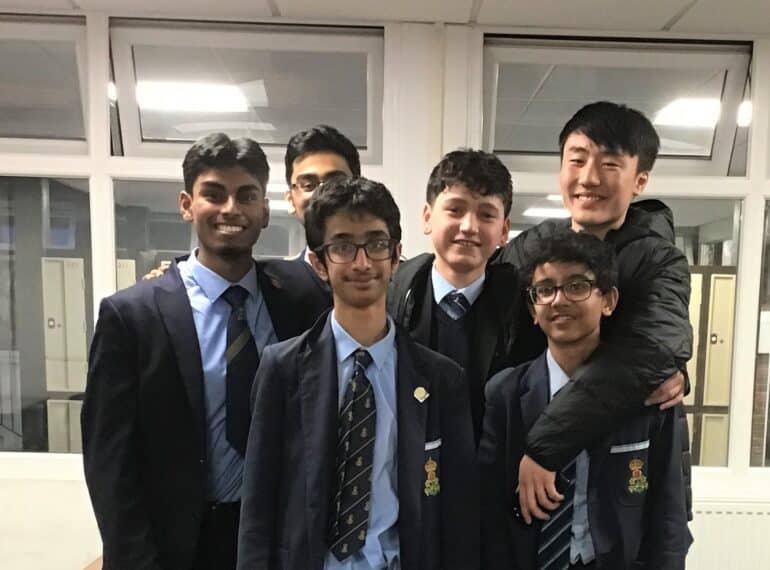
QE’s team heads for June’s national chess finals after seeing off local rivals in a keenly fought regional final.
Their hard-won North London zonal final victory over Latymer School followed a more comfortable 5½ – ½ semi-final defeat of Mill Hill School.
The six-strong team drawn from Years 9–13 now take on 15 other regional winners in the national final of the English Chess Federation-run National Schools’ Chess Championship. QE has enjoyed some success in the national finals in the past, but not in very recent years.
Teacher in charge of chess, Geoff Roberts, said: “Qualifying for the national final of this tournament is a real achievement and one that confirms our place amongst the élite chess-playing schools in the country. This competition is the one which every school has aspirations to win, so for Queen Elizabeth’s to have made it through to the national final is especially pleasing.”
QE’s 2022–2023 team comprises: Yash Mahajan, of Year 13; Joshua John, Year 11; Jason Tao, Year 11; Andreas Angelopoulos, Year 11; Daiwik Solanki, Year 10, and Nishchal Thatte, Year 9.
“My congratulations to all the boys who have represented the School in this competition and a particular mention to the captain, Yash, in his last year at Queen Elizabeth’s, for his role in creating the strong team environment which has underpinned our success.”
Their place in the national final depended on the boys beating Latymer School in their zonal final. It was, said Mr Roberts, “an exciting match of high-standard chess with the result in the balance throughout – and in a dramatic finish with both players short on time, Jason Tao secured the winning point for a 4-2 victory”.
The competition has been running since the 1957–1958 academic year, with QE marking its first success there the following year, when it came third. It was another 41 years before QE next appeared on the leaders’ board, with a fourth place in 1999–2000. It last won a top place – joint-third – in 2016–2017. QE’s record also includes successes in the Plate competition, in which the trophy goes to the School with the best result from among the first-round losers. QE was a Plate runner-up in 2012–2013 and in 2013–2014, with a third place in 2006–2007.
The national final of the competition takes place at the University of Nottingham on 29th–30th June.

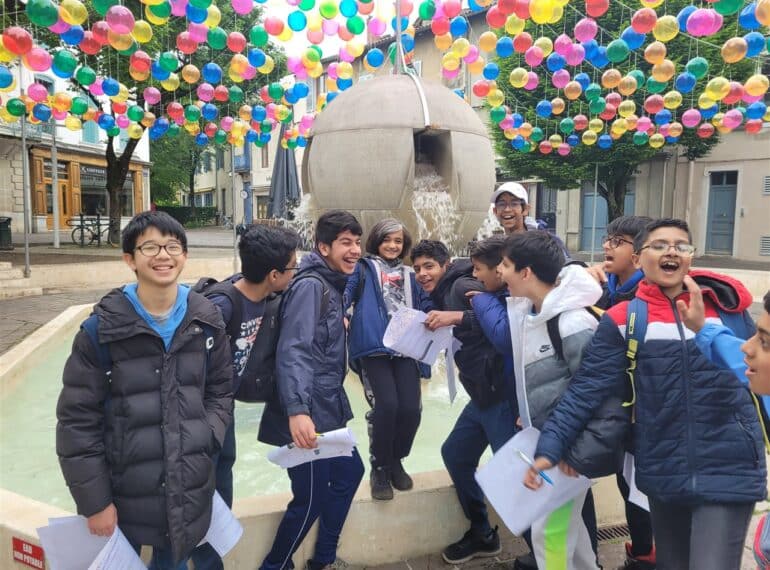
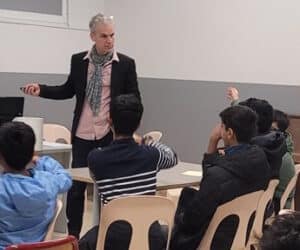 Twenty-one boys headed to Bourg-en-Bresse this month, a town which lies northeast of Lyon at the foot of the Jura Mountains. Their exchange partners came to Barnet last term.
Twenty-one boys headed to Bourg-en-Bresse this month, a town which lies northeast of Lyon at the foot of the Jura Mountains. Their exchange partners came to Barnet last term. The first exchange with Bourg-en-Bresse was in the 2010 Summer Term, when 13 pupils from Years 8 and 9 visited Collège St-Pierre, the alma mater of a QE French teacher of the time, Océane Jullien, who now teaches in Thailand.
The first exchange with Bourg-en-Bresse was in the 2010 Summer Term, when 13 pupils from Years 8 and 9 visited Collège St-Pierre, the alma mater of a QE French teacher of the time, Océane Jullien, who now teaches in Thailand. Visit to the local ‘parc des oiseaux’ (bird park) with their partners
Visit to the local ‘parc des oiseaux’ (bird park) with their partners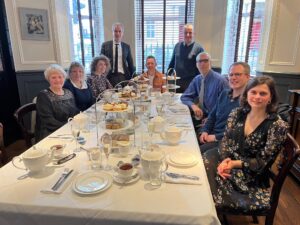 Fellow member of Harrisons’ House, Aaryav Sharma, said some of his most memorable moments took place above ground level: “We had a great afternoon doing accrobranche, which is a treetop adventure activity,” adding that he and two friends all “managed the really difficult black run, which was great!”
Fellow member of Harrisons’ House, Aaryav Sharma, said some of his most memorable moments took place above ground level: “We had a great afternoon doing accrobranche, which is a treetop adventure activity,” adding that he and two friends all “managed the really difficult black run, which was great!”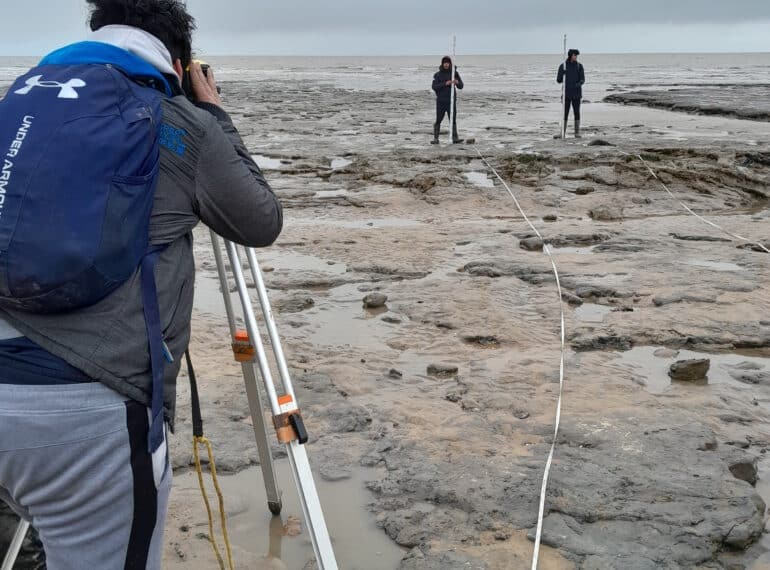
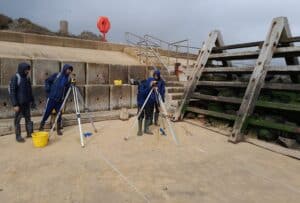 Braving a biting chill on the beach, the Sixth Form group investigated not only the threat posed by rapid coastal erosion at Walton-on-the-Naze, but also evaluated steps being taken by the town’s authorities to check it.
Braving a biting chill on the beach, the Sixth Form group investigated not only the threat posed by rapid coastal erosion at Walton-on-the-Naze, but also evaluated steps being taken by the town’s authorities to check it.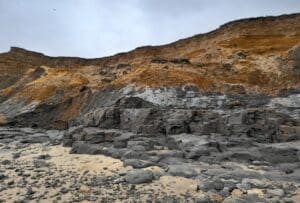 Walton has one of the fastest retreating cliff lines in the British Isles: on average, the cliffs are retreating between one and two metres every year. That the cliffs are falling away so rapidly is due largely to their geology.
Walton has one of the fastest retreating cliff lines in the British Isles: on average, the cliffs are retreating between one and two metres every year. That the cliffs are falling away so rapidly is due largely to their geology.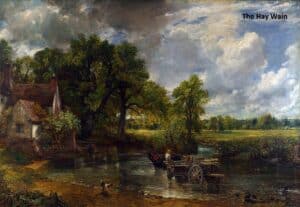 “However, the formations unfortunately represent a relatively weak barrier to coastal erosion.”
“However, the formations unfortunately represent a relatively weak barrier to coastal erosion.”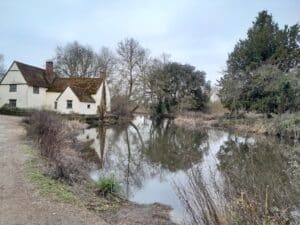 “Although no fossils were recovered, the fieldtrip was a great success, and despite the weather being bitterly cold, the boys demonstrated admirable fieldwork skills in sampling and collecting their data before analysis back in the classroom,” said Mr Butler.
“Although no fossils were recovered, the fieldtrip was a great success, and despite the weather being bitterly cold, the boys demonstrated admirable fieldwork skills in sampling and collecting their data before analysis back in the classroom,” said Mr Butler.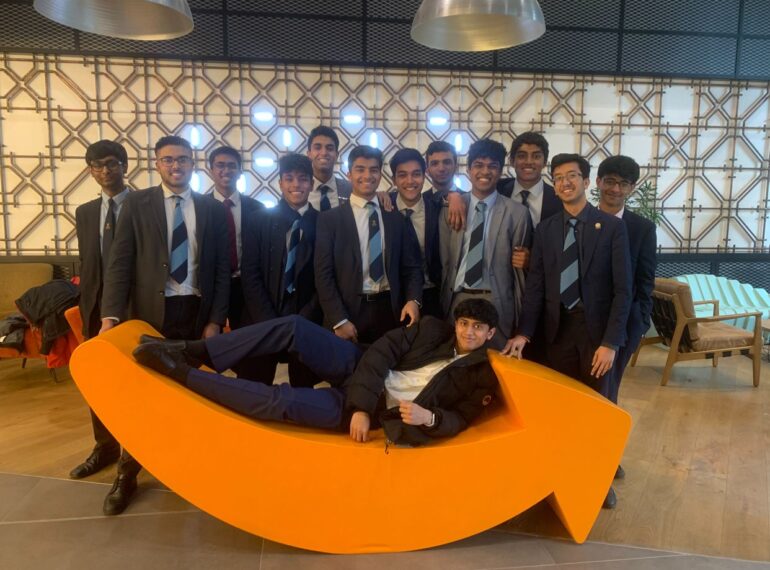
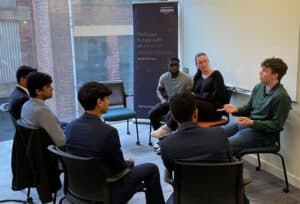 The boys were special guests at one of AWS’s monthly re:Purpose days, on which AWS staff are encouraged to get involved in projects and initiatives outside of their normal day-to-day work.
The boys were special guests at one of AWS’s monthly re:Purpose days, on which AWS staff are encouraged to get involved in projects and initiatives outside of their normal day-to-day work.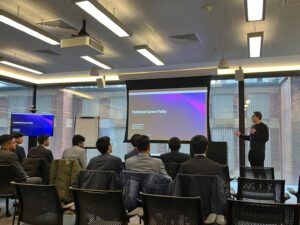 Enterprise Business Development Representative, Ella Cooper, who organised the day, together with her colleague, Juste Mena, said the day had seen the QE visitors “diving deep into careers in the cloud”.
Enterprise Business Development Representative, Ella Cooper, who organised the day, together with her colleague, Juste Mena, said the day had seen the QE visitors “diving deep into careers in the cloud”.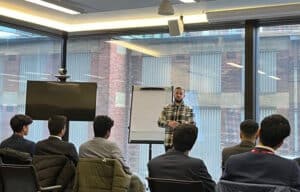 They also heard from Senior Manager Joe Welton and Solutions Architect, Jack Bark.
They also heard from Senior Manager Joe Welton and Solutions Architect, Jack Bark.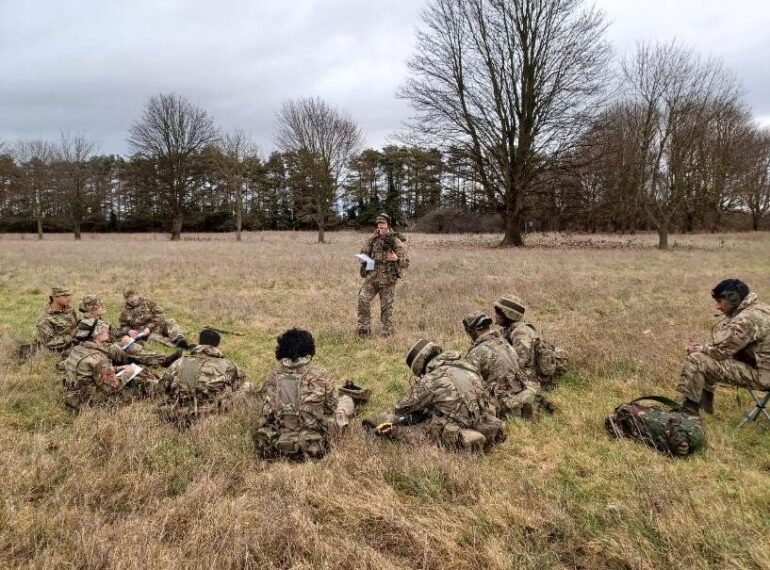
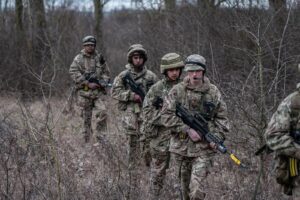 The School is planning a series of exercises so that QE’s Combined Cadet Force can try their hand against the local ACF.
The School is planning a series of exercises so that QE’s Combined Cadet Force can try their hand against the local ACF.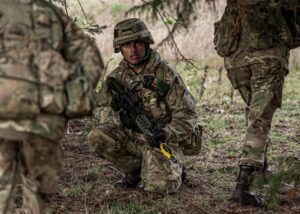 The half-term camp involving ten Sixth Form CCF cadets took place at the Cadet Training Centre Bassingbourn Barracks, Royston, north Hertfordshire.
The half-term camp involving ten Sixth Form CCF cadets took place at the Cadet Training Centre Bassingbourn Barracks, Royston, north Hertfordshire. It is essentially a screen that plays out like a video game, yet allows users to try real weapons with the correct action, recoil, and so on. The trainer reacts to the user’s decisions and execution, thus demonstrating the impact of his actions.
It is essentially a screen that plays out like a video game, yet allows users to try real weapons with the correct action, recoil, and so on. The trainer reacts to the user’s decisions and execution, thus demonstrating the impact of his actions.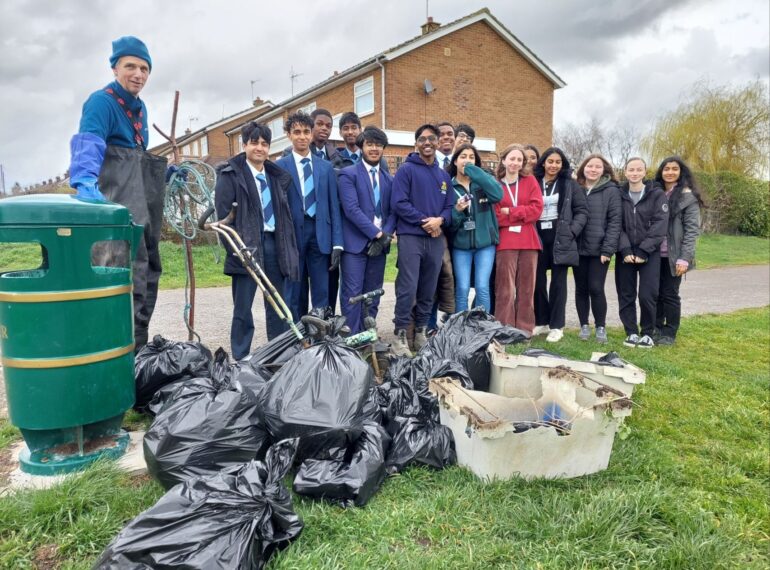
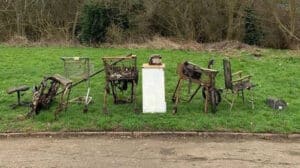 “We were both exhilarated and a little depressed at how much rubbish the QE Together team pulled out of a tiny section of the Dollis Brook. Thanks also to Ben from CURB for the inspiration!”
“We were both exhilarated and a little depressed at how much rubbish the QE Together team pulled out of a tiny section of the Dollis Brook. Thanks also to Ben from CURB for the inspiration!”